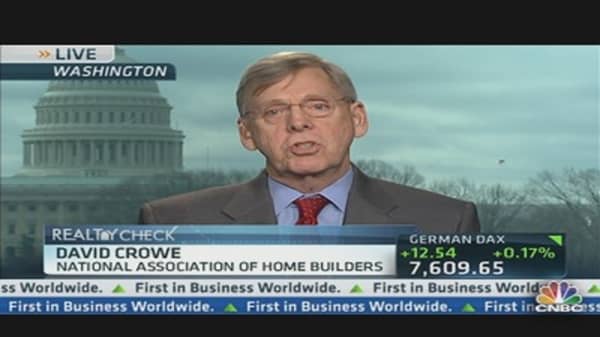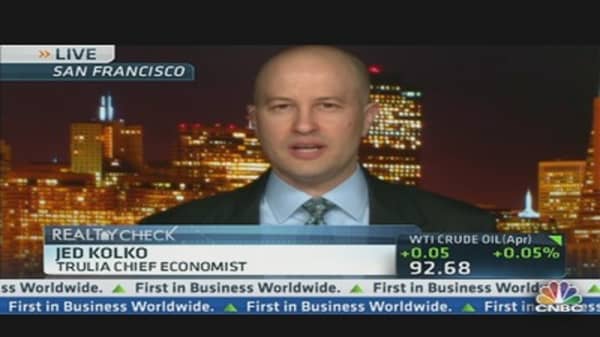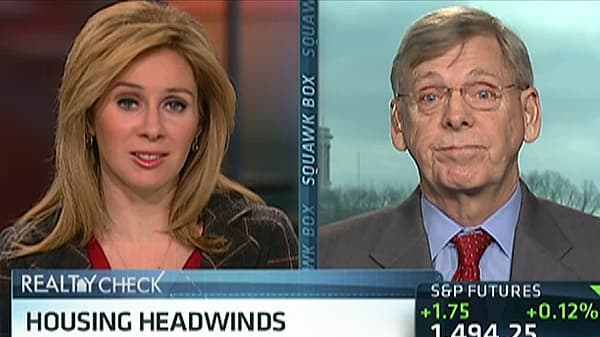Despite mounting evidence to the contrary, the housing market is "not going to gain momentum" this year, the chief economist for the National Association of Home Builders told CNBC on Wednesday.
"I mean that we will continue to grow," David Crowe said in a "Squawk Box" interview. "But you can't quite get that spark going until you solve some of the other problems that are still out there."
But this week's housing numbers painted a different picture. Contracts to buy existing homes, sales of new homes and U.S. consumer confidence overall surged in January.
(Read More: Pending Home Sales Soar Despite Rough Winter)
The S&P/Case Shiller composite index of 20 metropolitan areas registered its biggest increase in home prices in December since July of 2006—just before the bottom began to fall out of the U.S. housing market.
Crowe made his case by pointing to three problem areas. He said it's still difficult for buyers to get a mortgage; many home appraisals are coming in lower than the asking prices; and conventional housing inventory is facing price competition from foreclosures and short sales.






